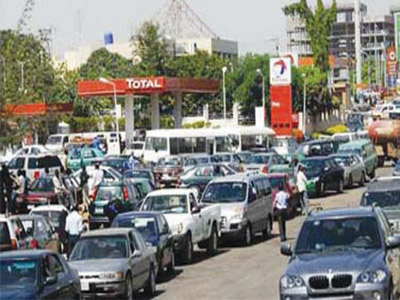
Should I keep back my opinions at such a time, through fear of giving offence, I should consider myself as guilty of treason towards my country and of an act of disloyalty towards the majesty of Heaven which I revere above all earthly kings.
–Patrick Henry
FOR the past four decades, the Federal Government has subsidized the consumption of petroleum products in the country.
As good as the intention is – a decision apparently taken to make life easy for the masses – it is clear that the scheme has failed to live up to its objective.
Our local transporters charge higher fares than in countries where energy consumption is not subsidized, while marketers have devised several tricks to subvert the initiative at the expense of supposed beneficiaries.
Yet, every year, a large chunk of our national budget goes into servicing the subsidy.
Leaders of thought, scholars, trade union leaders and politicians have come up, one time or the other, with templates on how the fuel subsidy can be managed better.
Most recently, diverse positions have been taken on the issue. In a report by Vanguard, an expert advised the incoming administration to jettison importation of fuel and pump money into rehabilitating the nation’s four refineries.
The National Assembly and labour unions, in recent weeks, rejected any attempt by the government to remove the subsidy. Perhaps, they believe the scheme is fulfilling its mandate, hence the cry for its continuity.
Subsidy had bred and is still breeding the most corrupt cartel in Nigeria’s history, to borrow the words of President Umaru Musa Yar’Adua of blessed memory.
Corruption is one of the most difficult wars to fight, especially when it is deeply rooted in a society where its tentacles run to almost all sectors of the economy.
This is the more reason Nigerians must pray for President-elect, Gen. Muhammadu Buhari, because so much is expected of him. The consolation, however, is that 32 years ago, Buhari learnt the craft of fighting corruption.
The NNPC, which was established to oversee the country’s oil wealth, has unfortunately metamorphosed into a cult of fraudulence.
The four refineries built some decades ago have become conduits through which the country’s resources are drained in the name of Turn Around Maintenance and crude allocation. Allocations to them remain 450,000 barrels per day when they can hardly refine 100,000 barrels per day.
Yet, some armchair experts say government should continue to fritter away its resources trying to fix them. Some even advise government to learn from countries that still run state-owned enterprise successfully, like China, Abu Dhabi, Saudi Arabia and Iran.
But if these countries are worth emulating, shouldn’t their stiff punitive systems also be copied? While Buhari might not be encouraged to behead the corrupt, he could, at least, lock them up in prison.
Is the nation prepared for this? Recall that a simple reprimand to a media outlet that championed hate campaigns against him threw up all forms of negative comments and cries of: ‘Oh! He has come again; he is a dictator!’
In an effort to plug the hole at the NNPC and make it more efficient, the government toyed with the idea of commercialisation in 2001, with a view to building retail outlets. Part of the broader vision was to make the NNPC a profit-oriented venture and improve its regulatory capacity. No sooner had government mooted the idea than staff realised the planned commercialisation would be the killer blow to their cash cow.
It will be recalled that the Nigerian Telecommunication Limited (NITEL) also held the nation’s communication system hostage for several decades until former President Obasanjo broke its monopoly. The case of NNPC is akin to that of an over pampered child whose breakfast is always fixed by the parents while the child is still snoring in bed.
But suddenly, the tide turns and the child is asked to wake up early and prepare breakfast for himself.
•Ankabeli wrote from Okpella, Etsako East Council of Edo State



